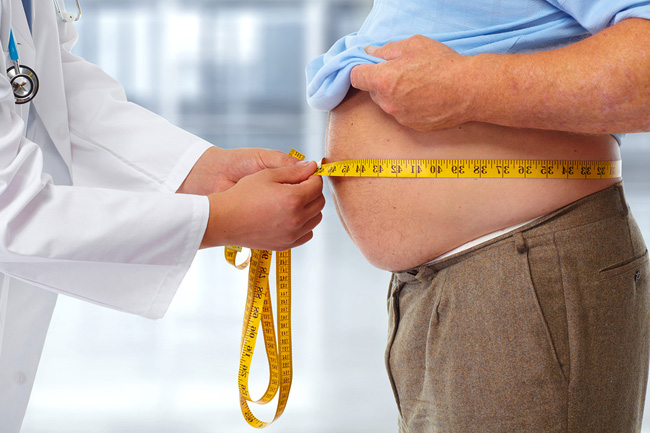Benefits of Coffee – Is Your Daily Cup Good for Your Body?

The health benefits of coffee go far beyond a simple pick-me-up that many of us enjoy first thing in the morning. You might be surprised to learn what coffee can do for both your physical and mental health.
Is Coffee Good for You?
Did you know that the health benefits of coffee include lowering your risk of disease? The body of scientific evidence in favor of coffee reducing the risk of many medical conditions is rapidly growing. Researchers now believe that coffee lowers the risk of type II diabetes, Parkinson’s disease, cardiovascular disease, and cancer in the liver and uterus.
The findings not only show a reduced risk of developing those diseases, they also indicate that coffee drinkers were less likely to die from heart disease, respiratory disease, stroke, injuries and accidents, diabetes, and infections. Specifically, people who drink three or four cups a day may be 19% less likely to die from cardiovascular disease.
In the largest study of its kind, NIH and AARP followed 400,000 men and women ages 50 to 71 for more than 10 years. The study found that those who regularly drank coffee — either decaf or regular — had a lower risk of overall death than did nondrinkers.
Even more powerful is the number of anti-coffee studies that have been discredited in recent years. The studies that were once cited as reasons that no one should drink coffee have now been proven untrustworthy.
In June, 2016, The World Health Organization (WHO) officially lifted coffee from the list of potentially carcinogenic foods, and is convinced by the newest evidence. They have removed some of their previous warnings regarding coffee consumption. While there are still some studies out there that don’t back up the powerful health benefits of coffee, other studies have suggested that coffee is a safe option for medical intervention and even prevention.
If you don't currently consume coffee, there is no recommendation to drink it anyway. Could your doctor one day prescribe coffee along with your fish oil and probiotics? According to the latest research, it’s possible.
Proven Health Benefits of Coffee for Boosting Your Mental Health

You know that coffee can make you more alert while improving your concentration and physical energy. That is more than enough to convince millions of people to enjoy at least one cup of coffee daily; but, the mental benefits of coffee consumption actually go much deeper.
Research shows that moderate coffee consumption can reduce symptoms of depression, lower the risk of suicide, and reduce occurrences of cognitive failure.
You don’t have to be depressed or suicidal to enjoy these benefits. Drinking your morning coffee or using it as an afternoon boost may help you feel happier and more satisfied with your life regardless of what is happening around you. That is a powerful benefit for anyone in all stages of life.
What’s the Catch?
Are you waiting for the bad news to drop? It seems that all good things come with some risk, and coffee is no exception if you consume the caffeinated version. AARP warns that the caffeine in your cup of joe could be dangerous if you have high blood pressure, diabetes, or anxiety. In rare cases high doses of caffeine can induce psychotic and manic symptoms. Patients with panic disorder and performance social anxiety disorder seem to be particularly sensitive.
If you are watching your cholesterol, and you don't want your coffee adding to the problem, you need to use a paper filter to trap the cafestol, a compound in coffee that raises LDL cholesterol levels.
While the previous risks are true for some people, keep in mind that many others with these conditions safely drink caffeinated coffee in low to moderate quantity.
If these concerns worry you, there is always the option of drinking decaffeinated coffee or tea. Although it eliminates some of the cognitive benefits, it’s always better to be safe than sorry. With all of the research pointing to the powerful benefits of drinking this beverage, you’re probably better off with a cup of coffee than a chemical-laced soda.
How many times will you fill your coffee cup today? While there are clearly some benefits of coffee that may inspire you to keep drinking, keep in mind that most scientific studies find maximum benefits and minimal risks with moderate consumption. This often means four cups or fewer per day.
|
|
|
|
More Topics That May Interest You
Some of the advertisers on my website are affiliate partners, which means that I may receive a small commission from any sale, at no extra cost to you.
For example, the Amazon affiliate advertising program is designed to provide a means for sites to earn fees by advertising and linking to amazon.com.
Your tips and purchases help to support this free-information website.
Thank you.
The content of this website is for informational purposes only and not intended to be taken as a replacement for professional medical advice, care, diagnosis or treatment by a doctor, dietitian, physical therapist, nutritionist or fitness instructor.
DO NOT BEGIN ANY EXERCISE PROGRAM WITHOUT CHECKING WITH YOUR DOCTOR FOR UNDERLYING CONDITIONS THAT MAY PREVENT YOU FROM DOING SO.






